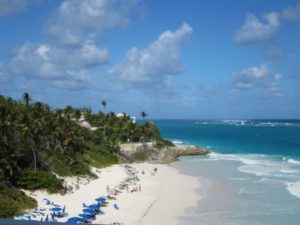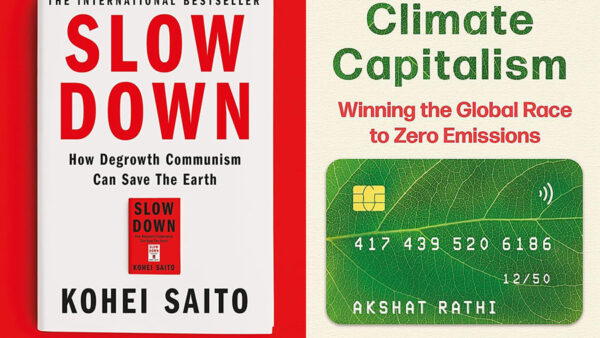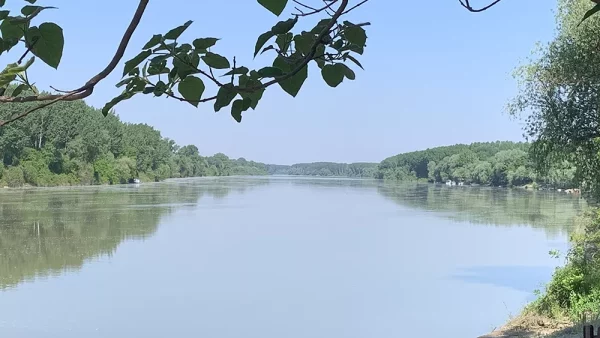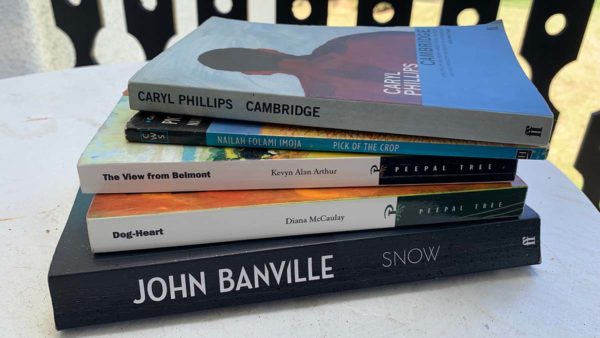 When I tell people I’m living in Barbados, the reactions are interesting. Words that come up a lot are “exotic”, “paradise”, “idyllic” and “jealous”.
When I tell people I’m living in Barbados, the reactions are interesting. Words that come up a lot are “exotic”, “paradise”, “idyllic” and “jealous”.
It’s understandable, of course, from people struggling through a grimy London winter, and I’m not criticising the people who say those things. I just wanted to point out that they have little relation to my experience of living here.
Yes, Barbados is a beautiful place. Yes, it really does have bright sunshine almost every day, temperatures that vary between 29 and 30ºC year-round, beaches of fine white sand, clear blue water that’s just deliciously warm to swim in, gentle trade winds that take the edge off the heat, some beautiful architecture, stunning tropical vegetation, and a more relaxed way of life than I’m used to from living in London and New York.
But life is not a tourist brochure. From day to day, I don’t sit on the beach with a cocktail in my hand and a contented smile on my face. I wait at bus stops, I queue in the Post Office for twenty minutes to buy a stamp, I do laundry, I go to the supermarket. I worry about money. I schlep all over Bridgetown with heavy shopping bags and dirt and exhaust fumes in my face. I feel anxious. I struggle with my writing. Some days it all feels so futile that I struggle to get out of bed.
There are also things I dislike about Barbados. Here are some of them:
- Dramatic beach erosion due to overbuilding on the coast
- Widespread homophobia (the old British anti-sodomy laws on which Oscar Wilde was convicted are still on the books here, and there was an outcry when the government tried to repeal them recently)
- The celebration of violence against children as a cultural norm
- People driving the privately-run public buses while drunk and/or high, speeding recklessly and playing misogynistic music at ridiculous volumes
- The fact that, when you say the above buses should be better regulated, people say nothing will be done because many of them are owned by police officers and government ministers
- The fact that, though this appears to be an open secret, you won’t see it in the newspapers or hear it on the government-owned TV station
- Disregard for environmental protection
- Inability to get any kind of business transaction done in less than two weeks – unless you have a friend in the right place, in which case it takes five minutes
My point is not to lambast Barbados. I could compile similar lists of things I dislike about London and New York, and if I lived anywhere for long enough I’m sure I’d find things to dislike there too. Overall I’ve really enjoyed the year I’ve spent here, and the good has far outweighed the bad. I’ve met some wonderful people, and had some great experiences – and going to the beach most evenings is an unbeatable way to finish off the day. My point is simply that this is not paradise. It’s a real place, with real issues, like any other.
But when I talk about the reality of Barbados, I get the feeling that it’s not really what people want to hear. The mental association of “Barbados = paradise” is so strong that what I say cannot affect it. People prefer me to talk like a tourist brochure, and to send them pictures of myself lounging in the shade of a palm tree on an impossibly beautiful beach, so that they can write back and tell me how jealous they are. If I say anything else, I sense a silent accusation: “You’re so miserable, you can’t even be happy in paradise?”
Even local people here in Barbados are heavily invested in the tourist-brochure image of the place. When they ask me if I like it, they don’t want a mixed answer. They want to hear me exclaim with delight at the beauty of the beaches and the brightness of the sun, and to say I don’t want to go back home. It’s not surprising, really – they are so dependent on the success of their tourism product that they’ve come to act out the role expected of them. I noticed the same thing when I lived in the USA too, and when I went back to the UK after living abroad: national self-image is constructed for particular reasons that have little to do with current reality, and can co-exist quite happily in people’s minds with directly contradictory evidence.
“Exotic” is an interesting term, too. When I first moved here, I was truly amazed by the exotic flowers and the elegant palm trees and the succulent tropical fruit. But to people here those things are not exotic at all, and the longer I live here the more normal they become. To a Barbadian, exotic fruits are not mangoes or soursop or papaw or hog plums, but grapes. The most exotic flowers are not heliconia or bird-of-paradise, but tulips. I’m not there yet, but I am so accustomed to the way things are here that they are becoming the new normal. Exoticism is a powerful drug whose effects wear off quickly.
There’s also a problem, of course, when you’re an outsider and you criticise a place. Everybody feels proud of their home, and nobody likes to hear an outsider complaining about it. The issue is complicated here by me being a white British man in a country with a horrific and relatively recent experience of being oppressed by white British men. So mostly I keep my thoughts to myself, both here and with my friends back home, and talk about beaches and palm trees.
But it’s weird to live in a place where the image is so fixed, and where it’s difficult to talk without either quoting from a tourist brochure or contradicting it. The paradise image is so pervasive that I’m sure this post won’t puncture it – nor would I want it to, because the image is what keeps the island’s economy from collapsing. But I just felt like telling the truth for a change.




There are 10 comments
Great post Andrew.
I must admit that when I first noticed on your Blog where you lived the typical stereotypes did pop into my mind.
Your comments are a remainder that most places and situations have pluses and minuses.
I also know someone who someone who moves frequently. He feels that wherever he is living at the moment is the “worst place to live”. His next anticipated move will take him to paradise. When they get to paradise he finds that he cannot stand it.
I know some folks who live in what sound to me like horrible place (I will not mention it as I do not want to offend the residents) who love it!
Hi Brian
It’s interesting about your friend! Some people do think that a move will fix all their problems. I think the key is to realise that everywhere is in some respects the best place to live and in some the worst. Usually the reality of a place only becomes clear after a while of living there. I still think Barbados is a better place to live than many others, but it’s not perfect! Like you, I know people who are happy in places I’d never want to live!
This sounds familiar – people envying you for the place you live in and the life they imagine you have – all based on half heard truths and pictures, not knowing the price you have to pay for your little slice of heaven. Behind the beautifully painted facade there is a whole different world that can’t be penetrated by the tourist eye – only the one who faces the daily grind of a routine can give an accurate description of the truth. I sense a lot of sadness in your words. I hope it’s just my perception and not necessarily the reality.
Hi Delia
Yes, I bet you get a lot of the same thing, living in Thailand. You’re right to detect some sadness in my words. I never expected Barbados to be paradise, but still some of the things I’ve seen do sadden me. I also know where a lot of the problems come from, in a small country recently decolonised and with limited resources and a lot of historical baggage. It’s a very difficult situation to be in, and perhaps some of the problems I see were unavoidable, and that makes me sad too.
Your post really hit the spot for me with its many parallels to our experience, living is South Africa. We have very similar issues to those raised by you – rampant government corruption, failure of most bureaucratic structures, collapse of infrastructure, drunkenness, violence against women and children, homophobia, road deaths, poor education, poor healthcare system, etc etc. But…… people here and around the world prefer to speak glowingly of South Africa in terms of the “miracle of our freedom and democracy”, Nelson Mandela (our only true hero) and our wonderful wildlife. Criticism or the expression of real concern over deteriorating conditions is frowned on and you are in danger of being accused of being “racist” or worse, “anti-revolutionary”. A huge dose of political correctness is required and denialism rules!
Hi Marsja
Glad the post resonated with you! It’s amazing how difficult it is to speak of your own experience sometimes, if it doesn’t fit with the preferred narrative. Unfortunately the nationalist narrative is usually very simplistic, and glosses over many important details. Of course the triumph over apartheid was heroic, but that doesn’t mean everything in the new South Africa is perfect. Nothing anywhere is perfect! It’s important, I think, to be honest about the good and the bad, and to move beyond the easy subjects of weather and wildlife!
Beautiful post. Beautiful perspective. Honestly, I used to have that paradise picture about barbados until I read your post. Interesting perspective. Hope you had a wonderful year though!
Thanks geosi. I did have a wonderful year! Barbados is a wonderful place to live, and I’m so glad I spent 2012 here. It’s not paradise, but it still beats living in north London!
Perceptions of place are always interesting. I found this fascinating, possibly because my first novel explores some of the ideas you’ve highlighted here. For example, people arriving in the UK often associate England with iconic images of London, country cottages and rolling hills, when the reality is very different.
Barbados does conjure up certain images and it’s interesting to have your view of the world challenged. Great post!
Hi Michelle
You’re absolutely right about the image of England. In fact, I find that a lot of English people play up the idyllic image themselves, even though it has little connection to most people’s urban lives today, and it’s also reinforced by a lot of the TV and films that we produce. It wasn’t until I moved to the USA for six years that I really got a perspective on the skewed image of England. Your book sounds fascinating!